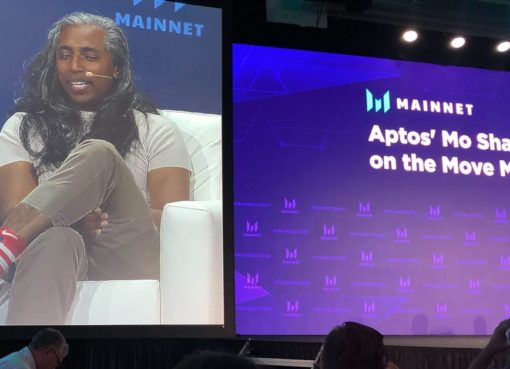Artificial intelligence and blockchain technology can be considered two of the greatest innovation drivers of the last decade, already having influenced various sectors such as finance, supply chain management and more. Thus, it stands to reason that combining the two technologies can unlock even further possibilities.
While the use of artificial intelligence in the crypto industry is still relatively new, it is showing promising potential for further growth, as the blockchain AI market is projected to reach a valuation of US$980 million by 2030.
Let us explore the possible AI applications in blockchain and how they can bolster the crypto industry and its adoption in mainstream finance.
Enhanced cybersecurity and fraud detection
One area where applying AI can benefit people is the security of blockchain transactions, creating more resilient payment systems. Firstly, AI algorithms can be used to analyze transaction patterns and data, allowing for the detection and prevention of fraudulent transactions on the blockchain before they occur.
Secondly, AI can employ machine learning algorithms to enhance the privacy aspect of transactions. Artificial intelligence can analyze large amounts of data and identify patterns that may indicate an attempt at data theft or unauthorized access to a user’s account. This makes it easier for businesses to deploy proactive security measures, as they can set up automatic alerts for suspicious activity and protect sensitive data in real time.
There are already examples of projects that implemented such AI utility. The crypto-tracking platform Scorechain deployed artificial intelligence to improve its anti-money laundering transaction monitoring software and implement better fraud prediction measures. Another recent example is CipherTrace, a blockchain security branch project of Mastercard, that adopted AI on its platform to harness on-chain data and assess the riskiness of various crypto merchants based on their activities.
In short, by incorporating AI algorithms into blockchain technology, organizations can create a more reliable and trustworthy ecosystem for conducting their operations.
Data analysis and management efficiency
Artificial intelligence can help companies gather and analyze vast amounts of data. A major part of running any business is access to relevant information and its accuracy. In this regard, blockchain is a very efficient instrument, as it affords swift access to new information that is completely transparent and immutable.
The application of AI can then further add to this advantage by enhancing the process of data analysis. AI-powered algorithms can process large amounts of data from blockchain networks in real time, identify patterns that human analysts might miss, and generate insights to support business operations. All of which is accomplished at great speed, as a lot of time-consuming manual processes get automated, further improving operational efficiency.
Furthermore, the usage of artificial intelligence can also streamline such aspects of running a business as supply chain management and financial transactions. AI can automate financial processes on the blockchain, such as invoicing and payment processing, eliminating the need for intermediaries and improving efficiency. It can also help track products on the blockchain and ensure authenticity and transparency, as all members of the network can see the same records.
Back in 2020, IBM launched a blockchain-based platform for tracking food manufacturing and supply chain logistics, and it onboarded many European manufacturers, distributors and retailers, all of whom shared tracking and accounting information. This is a good example of how such technology can be applied to enhance business practices, reduce operational costs, improve efficiency, and ensure the quality of goods and services important for everyday life.
Bolstering DeFi
The intersection of AI and blockchain can also be utilized to bolster decentralized finance and Web3, allowing for improved creation of decentralized marketplaces.
Many of blockchain’s advantages revolve around the usage of smart contracts that help with automating processes and eliminate the need for intermediaries. However, creating smart contracts can be complex and time-consuming. AI algorithms like ChatGPT employ natural language processing that can simplify this process by allowing developers to write smart contracts using plain language. This can help reduce the possibility of errors, improve coding efficiency, and lower barriers to entry for new developers, making it easier to create decentralized applications.
Beyond that, AI can also be used to optimize user experience in Web3 marketplaces. By tracking user search patterns, artificial intelligence can provide personalized recommendations, matching buyers and sellers. AI-powered chatbots and virtual assistants can improve customer service and facilitate transactions, while blockchain technology can ensure the authenticity of goods.
We can also once again raise the subject of AI’s ability to analyze large amounts of data, which would allow it to identify trends, predict demand and supply patterns, and enable better decision-making for users and operators of Web3 marketplaces.
We are already seeing examples of AI integration in this manner, with one of the newest examples being the French luxury goods giant Kering. Earlier this year, the company introduced a new marketplace that combines both artificial intelligence and crypto elements. Not only does the platform offer services of an AI-powered chatbot that assists shoppers with browsing through its selection, but customers can also connect their crypto wallets and buy items using Ethereum cryptocurrency.
Synergies of crypto with AI
While AI implementation in the crypto industry is still in its early stages, we can see that there is no shortage of promising ways in which this union can be realized. In DeFi and Web3 alone, artificial intelligence holds the potential to vastly improve aspects of the market, making it more appealing to new users.
Beyond that, if traditional organizations are added into the equation, the union of AI and blockchain has the potential to vastly enhance business practices, improving efficiency, user experience and decision-making. In the coming months and years, we will no doubt see further development of the bond between these two technologies, and I look forward to seeing what will come of it.




